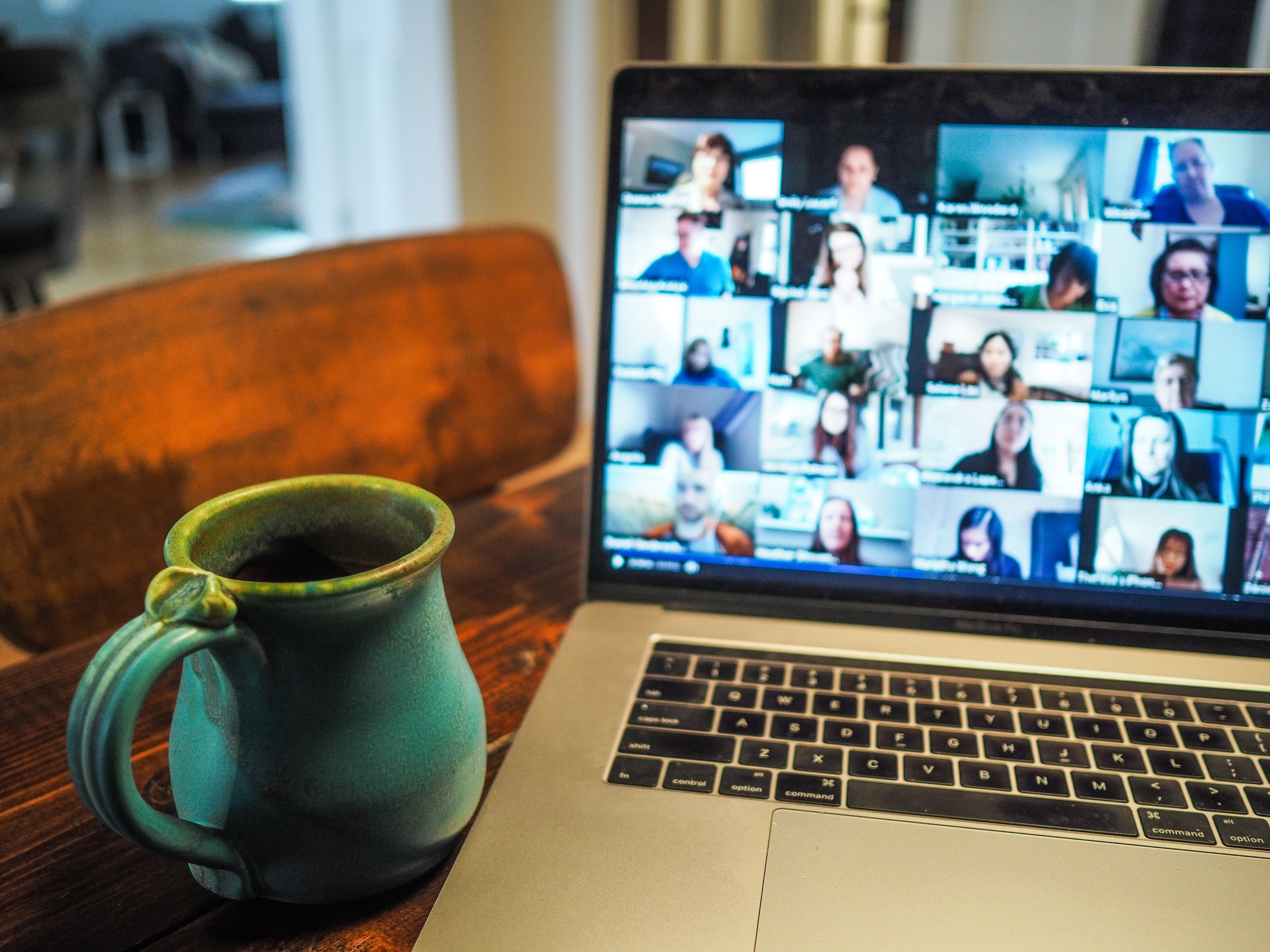The Blurring of Boundaries - Working from Home
Posted on:
Who's had an awkward Zoom moment? And by Zoom, I could also mean Jitsi, Whereby, Google Meet, Facebook Live, Teams, or any number of live video where someone has had an unlucky moment and an audience saw it.
Some of these moments get famous - like the news reader with his children bursting into the study, turning around and the whole world seeing he was in boxer shorts under the desk. Or the lady casting from her PC and there's an ahem adult item on her library shelf. I was in a Zoom meeting with sixty people talking about science fiction and someone obviously forgot she was on camera. She started brushing her teeth, much to the horror of the organisers!
The pandemic has changed the playing field for some aspects of accessibility. When companies are faced with a 'work from home or just stop working at all' ultimatum it seems that we suddenly can work from home. I find that increasing the volume on just one person at a meeting can be a real life saver, and the fact that the camera can be turned off during meetings can also relieve anxiety and social pressure. Plus our cats love to help out in meetings by showing us their opinions (and dogs just enjoy taking part in the background). Time once spent commuting is now saved, social anxiety can be mitigated, and if you don't have meetings, you can totally stay in your boxers, TV News Anchor Dude (but just a hint - business up top, party down below doesn't work for mullets or zoom meetings).
Working from home is a different skill set for employees and employers.
Employers with a low amount of trust in their staff need to address this on a cultural basis, and this can be an awkward realisation for a management team. If your business insists on attendance as a way to micromanage your staff, you may be in for a shock when businesses return to more normal hours in future. Employers that rely on fear based tactics will find that employees returning to work might be a little more thoughtful, and possibly a little more insistent on being given a few freedoms (or in some cases just our basic human rights). With a pandemic raging outside, people are thinking more about the lives they lead (and the lives they have away from work), and more employers are finding difficulties filling roles.
This also means that businesses, companies and professionals have suddenly been given access to our private lives, and the jury is still out on whether this is a good thing. I objected to my workplace co-opting my phone for their own use, however when it comes to the possibility of working from home, I would throw out my morals in a heartbeat. Almost an hour and a half each day in travel time saved. Fuel money saved. Lunch money saved. I could sleep in to a comfortable time, be awake and alert and ready for my shift. I have a work compliant PC and a three monitor setup - I'm the first to volunteer to work from home and the first to be told I am not in the high risk of COVID group!
When things go wrong, where the responsibility lies becomes confusing. If I purchase my own office chair for 8 hour days at home and get back problems because of this, is this covered by workers compensation since it was during a work activity, or a personal issue without cover as it's in my own home? Who pays for the chair initially? Would that determine if this was a workers compensation case? Or if you need to stay home during a lockdown and need to set up your workstation at the kitchen table? Space is a luxury in most homes, and setting up the workstation next to the home schooling station is going to be difficult at the best of times. Who would be liable for damage to a laptop from a spilled drink?

Businesses need to focus on providing profits to their shareholders but as 2021 marches on, we are at the dawn of a new wave of work. Automation and robots are completing more of the entry level work, and as they do the definition of what is 'work' is changing too. The idea of paid work is moving away from physical exchanges of labour and leaning into creative or digital skills. While the benefits of working from home are many, some companies have considered charging (and are some have actually started it) their employees for the right to work at home. While on the other hand, some employees considered charging their employers for the same privilege. Before the Pandemic changed my life, I had never considered how stressful having your boss viewing your home every day would be. Covid-19 has changed the world in some subtle ways and we're going to be feeling the effects of this for decades to come.
